Everything we know about M4 relief road inquiry
- Published
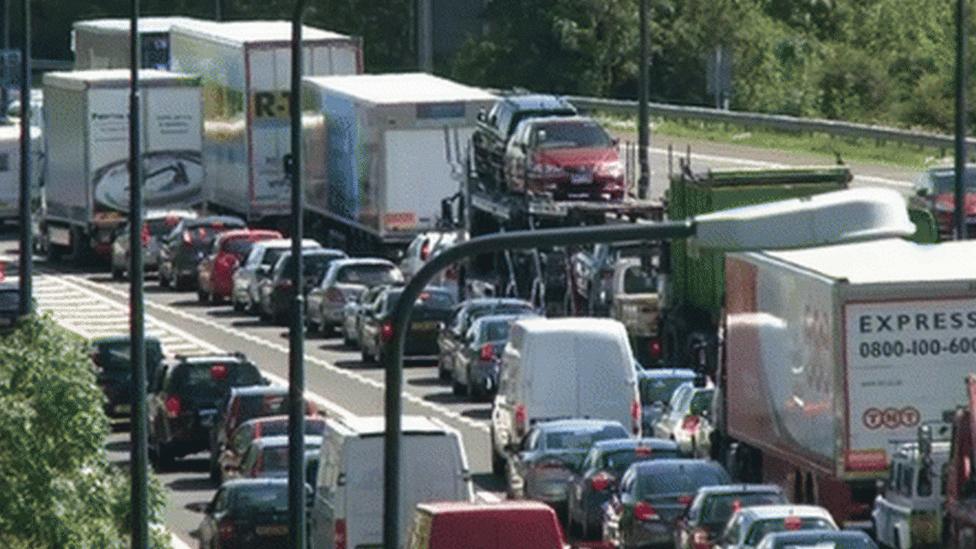
Supporters of the relief road point to congestion as hindering the economy
The M4 relief road public inquiry has come to an end after a year and the Welsh Government has made its closing statements.
It has been a long road, full of twists and turns.
What was the inquiry about?
The Welsh Government wants to build a new 14 mile (23km) six-lane stretch of motorway south of Newport. It would include a bridge across the River Usk, as well as major remodelling of junctions 23 and 29 of the M4.
The aim is to relieve congestion on the current M4 route which runs north of Newport, particularly around where it narrows to two lanes at the Brynglas tunnels. Supporters say this will boost the economy by improving access for people and goods in and out of south Wales.
Plans for a relief road to ease congestion have been discussed for over two decades, but the project was revived in July 2014 when Edwina Hart, who was economy minister, gave it the go-ahead after agreement between the Welsh and UK governments over how to fund it.
There were three possible routes discussed - and it was the so-called black route that won the backing of the Welsh Government.
Subsequently a cheaper fourth route was proposed by transport expert Stuart Cole. This was dubbed the blue route and would involve an upgrade of the A48 Newport Southern Distributor Road and the former steelworks road.
The cost has been a sticking point - in 2015, First Minister Carwyn Jones predicted the relief road would cost "nowhere near" £1bn, but the estimated cost is now £1.4bn. He has called on the UK government to waive VAT on the project to bring the cost down.
In 2016, the current Economy Secretary Ken Skates announced the public inquiry which has been looking at the business case for the Welsh Government's favoured black route, to ensure it represents value for money.
The inquiry received 335 formal objections and 192 letters of support.
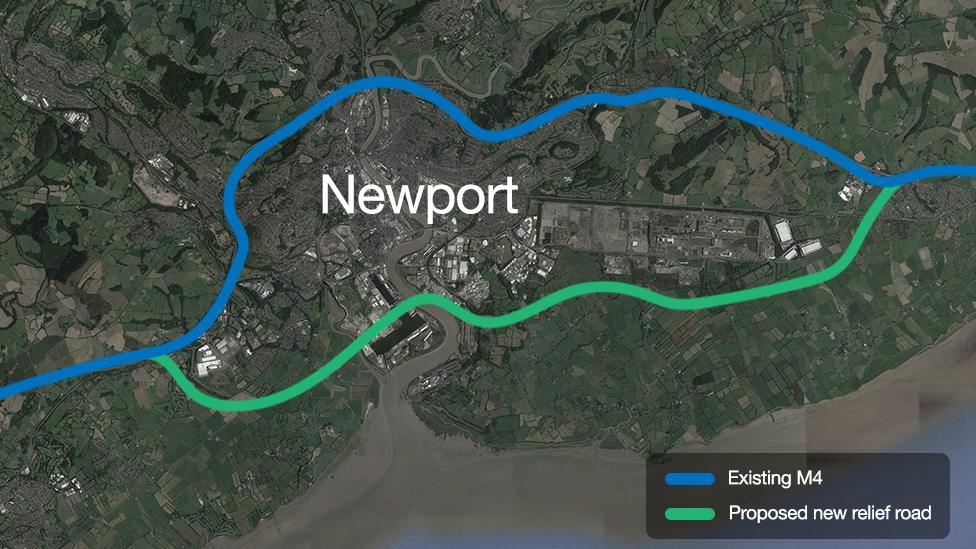
This map shows the route of the proposed M4 Relief Road - the "black route" is in green
What do economists and businesses think?
Economist Stephen Bussell, a Welsh Government witness, told the inquiry the wider impact of the scheme to Wales and the UK was worth over £2bn. Mr Bussell told the inquiry "costs of investment will be more than offset by the improvements in transport economic efficiency, safety and carbon emissions".
Professor Calvin Jones, of Cardiff Business School, proposed that the road should have tolls to "claw back" some of the cost.
Those in favour of the black route include the Confederation of British Industry (CBI) , externaland South Wales Chambers of Commerce, which think this option is best for relieving the congestion which is "detrimental" to the economy. The inquiry had heard Wales' busiest stretch of road is reaching capacity, carrying up to 117,000 cars a day, and CBI figures predict a 30% increase in traffic by 2025.
The Federation of Small Businesses agreed that congestion is an issue but favours the less expensive blue route over cost concerns.
Individual businesses also gave evidence to the inquiry.
Roadchef, which runs the services at Magor, Monmouthshire, argued that the black route could result in drivers having to take a 4.4 mile (7km) detour to access services, and that this would leave a dangerous gap in service station provision on the main motorway. The Welsh Government rejected the claim.
ABP, which runs Newport docks, had objected to the black route because a bridge over the River Usk would have cut across the site, potentially restricting the operation of the port. They removed their objection in January after the Welsh Government agreed to carry out £135m improvements to mitigate the impact.
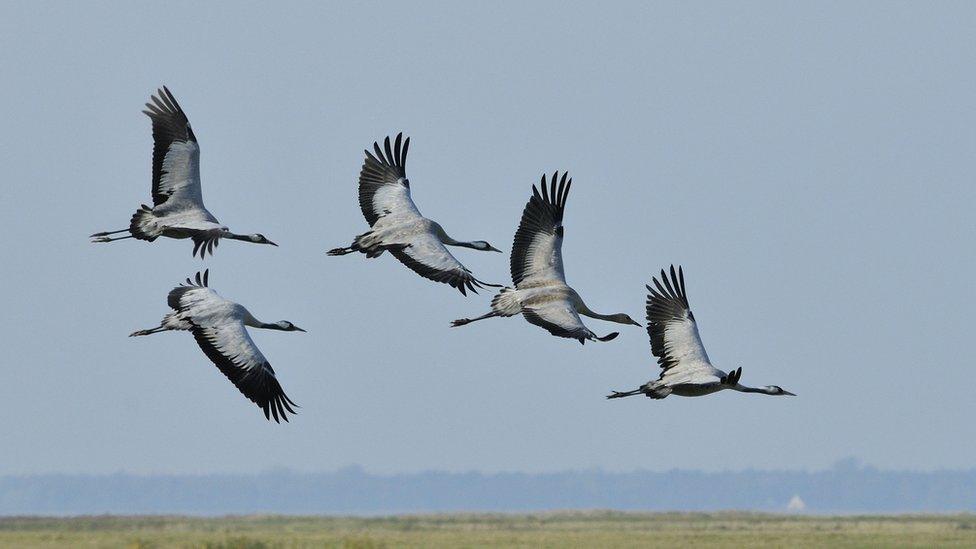
The RSPB said the relief road would cut through the first nesting site for common cranes in Wales in over 400 years
What about the environmental campaigners?
Environmental regulator Natural Resources Wales said that even though issues had been satisfactorily resolved to a "significant degree", it concluded "the impact on the Gwent Levels is too great".
That is a view echoed by other environmental campaigners. The Gwent Wildlife Trust told the inquiry the scheme would "rupture" what it calls "Wales' own Amazon rainforest".
The Campaign for the Protection of Rural Wales (CPRW) said it would damage "historic landscape", while nature presenter Iolo Williams said it was "government sponsored ecocide" that would affect species including otters, water voles, bats, dormice and rare beetles, and dismissed the Welsh Government's ideas for mitigating the impact.
It also emerged that the black route would cut through the first nesting site for common cranes in Wales in over 400 years.
Are there any other considerations?
Future Generations Commissioner Sophie Howe, who has a legal duty to advise Welsh ministers on whether government projects offer the best deal for future generations, is opposed to the project and said ministers could be setting a "dangerous precedent" in the way they have interpreted the Wellbeing of Future Generations Act, external.
"I do not agree with the basic premise that this is the 'most sustainable, long-term solution to current social, environmental and economic problems associated with this route'," she said.
The CBI criticised her for being too negative and "cherry-picking" parts of her brief to prioritise the environment over jobs.
The inquiry heard about 22 possible alternative routes, including an idea to build a tunnel for the motorway, something the Welsh Government estimated would cost nearly £10bn.
What about politicians?
The Welsh Conservatives back a new road but leader Andrew RT Davies said he would not sign a "blank cheque" for the scheme.
Plaid Cymru and UKIP backed the cheaper blue route in the assembly election but UKIP has since said it could back the black route.
In the run up to the 2016 assembly election, the Liberal Democrats were opposed to the relief road on the basis of cost.
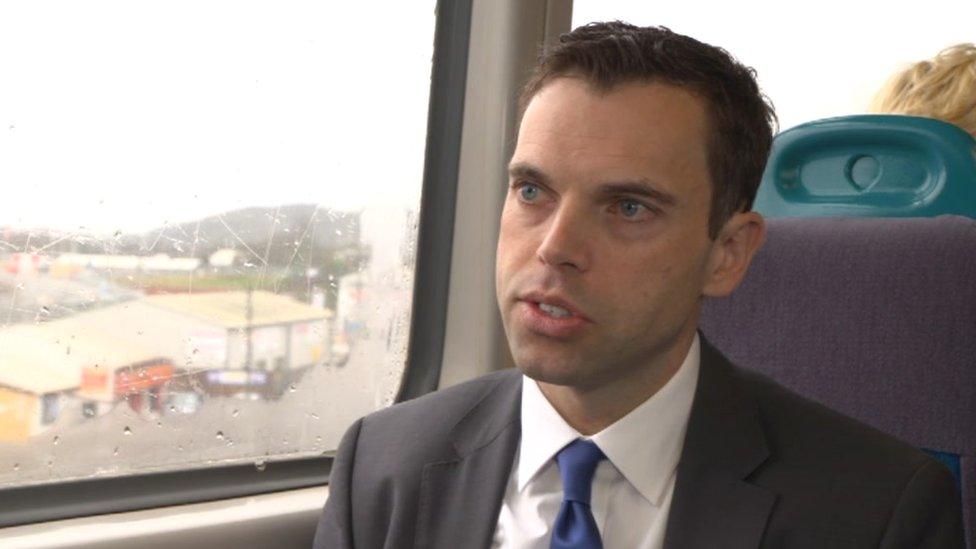
Economy Secretary Ken Skates says it is essential the M4 "artery" is not clogged
What happens next?
Inquiry inspectors will report on their findings, but this will not be binding on the Welsh Government.
BBC Wales was told earlier this year that AMs will get a vote on plans for an M4 relief road south of Newport, but as things stand it is understood this would not be binding on the government.
If the decision is made to go ahead with the project, construction could start in the autumn and would take five years to complete. However Labour AM Lee Waters has predicted that a decision to proceed could be open to legal challenge, so the wrangles could continue.
- Published28 March 2018
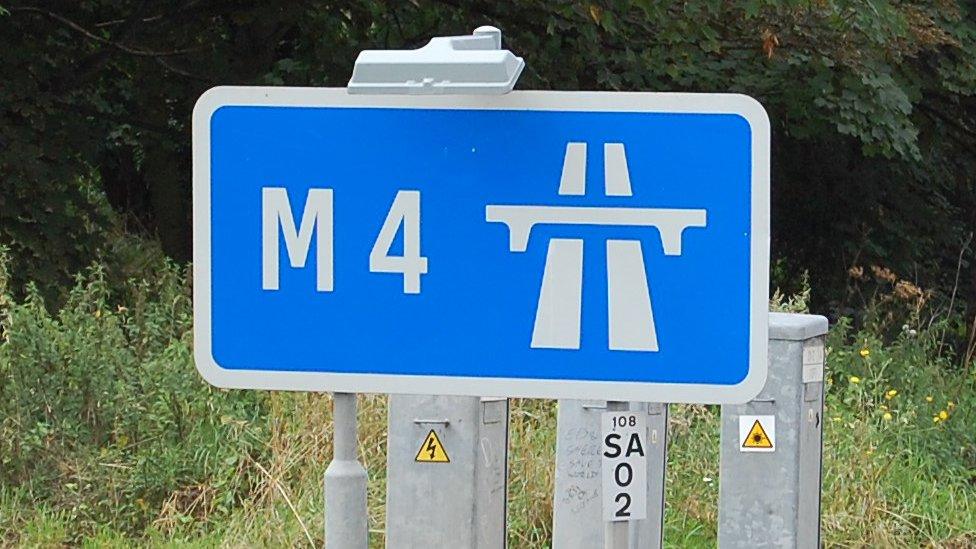
- Published22 March 2017
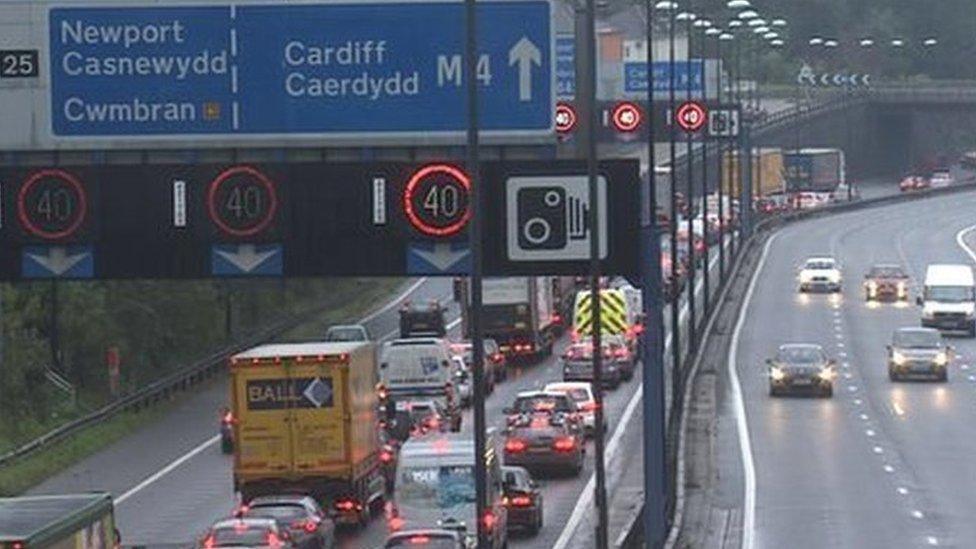
- Published23 March 2018
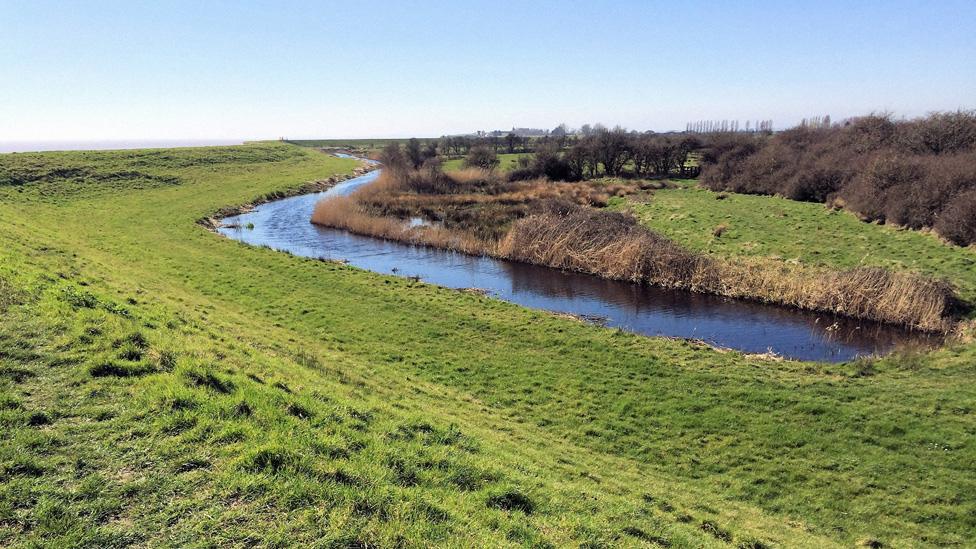
- Published23 January 2018
